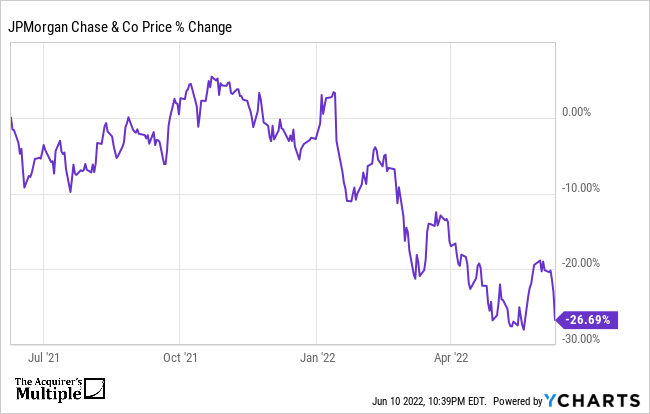
If you're looking for tech dividend stocks, there are several great choices out there. Below we will discuss Texas Instruments (Seagate), Cisco, HP Inc. and Cisco Systems. While these companies are excellent choices, there are a few things that you should remember before investing. These companies are often highly valued, so it's important to thoroughly research them. Keep an eye out for dividend opportunities and growth.
Texas Instruments
Texas Instruments might be a good stock to consider if your search is for tech dividend stocks. TI has an impressive track record of returning cash to its shareholders. Recent announcement highlights 18 years of uninterrupted dividend increases. TI's solid fundamentals are compelling reasons to invest in TI stock. TI's strategic business outlook and business strategy is also compelling. Investors should be aware that these statements can be speculative, and they come with risks and uncertainties.

Seagate
Seagate, and other tech stocks, might appeal to you if you are looking for low-cost high-yield dividend stock options. These companies have been increasing their dividend payouts for years. Some have even paid them for over a decade. Western Digital doesn't pay dividends at all. Despite these risks, you should consider investing in Seagate and other tech dividend stocks, as they tend to pay a reliable dividend.
HP Inc.
HP Inc., an American multinational information technology company, is headquartered in Palo Alto (California). The company produces personal computers, printers, as well as related supplies. The company produces a variety of products, including 3D printing. HP Inc.'s FAQ provides more information. This article will provide an overview of HP Inc.'s products & services. Before we begin, let's take a look at what sets HP Inc. apart from its competitors.
Cisco
While the market is generally stable, there are some companies that have demonstrated that they can still make profits through high-yielding dividend stocks. One such company is Cisco. This tech dividend stock has a record of paying out a decent dividend, and its future growth prospects look strong. The stock's dividend may not have been as impressive as investors expected, but it is still a viable option for conservative income investors.

SAP SE
SAP SE (NYSE-SAP) is one the most prominent companies in the software sector. The company has been on the rise over the past few years, and its dividend payments have reflected this growth. This company is one of the most prolific dividend payers and has a proven track record of growing shareholder value. What is it that makes SAP such a attractive dividend stock to invest in? Let's have a look at SAP's past. The company was founded in 1972 and has over 140,000 shareholders. Its market capitalization is currently $7.3 billion and its growth rate has been over 6% over the past 4 years.
FAQ
What is a REIT?
An entity called a real estate investment trust (REIT), is one that holds income-producing properties like apartment buildings, shopping centers and office buildings. These are publicly traded companies that pay dividends instead of corporate taxes to shareholders.
They are similar to corporations, except that they don't own goods or property.
What is the difference in the stock and securities markets?
The securities market refers to the entire set of companies listed on an exchange for trading shares. This includes stocks and bonds, options and futures contracts as well as other financial instruments. Stock markets can be divided into two groups: primary or secondary. Primary stock markets include large exchanges such as the NYSE (New York Stock Exchange) and NASDAQ (National Association of Securities Dealers Automated Quotations). Secondary stock markets are smaller exchanges where investors trade privately. These include OTC Bulletin Board (Over-the-Counter), Pink Sheets, and Nasdaq SmallCap Market.
Stock markets are important because it allows people to buy and sell shares in businesses. The price at which shares are traded determines their value. Public companies issue new shares. These shares are issued to investors who receive dividends. Dividends can be described as payments made by corporations to shareholders.
Stock markets are not only a place to buy and sell, but also serve as a tool of corporate governance. The boards of directors overseeing management are elected by shareholders. Boards ensure that managers use ethical business practices. If a board fails in this function, the government might step in to replace the board.
How are securities traded?
The stock market lets investors purchase shares of companies for cash. Shares are issued by companies to raise capital and sold to investors. Investors then sell these shares back to the company when they decide to profit from owning the company's assets.
Supply and demand are the main factors that determine the price of stocks on an open market. The price of stocks goes up if there are less buyers than sellers. Conversely, if there are more sellers than buyers, prices will fall.
There are two methods to trade stocks.
-
Directly from the company
-
Through a broker
What are the benefits to owning stocks
Stocks are less volatile than bonds. If a company goes under, its shares' value will drop dramatically.
The share price can rise if a company expands.
In order to raise capital, companies usually issue new shares. This allows investors to purchase additional shares in the company.
Companies borrow money using debt finance. This allows them to access cheap credit which allows them to grow quicker.
When a company has a good product, then people tend to buy it. The stock will become more expensive as there is more demand.
The stock price will continue to rise as long that the company continues to make products that people like.
How does inflation affect the stock market?
The stock market is affected by inflation because investors need to pay for goods and services with dollars that are worth less each year. As prices rise, stocks fall. This is why it's important to buy shares at a discount.
Is stock marketable security a possibility?
Stock is an investment vehicle where you can buy shares of companies to make money. This can be done through a brokerage firm that helps you buy stocks and bonds.
You can also directly invest in individual stocks, or mutual funds. There are more mutual fund options than you might think.
These two approaches are different in that you make money differently. With direct investment, you earn income from dividends paid by the company, while with stock trading, you actually trade stocks or bonds in order to profit.
Both of these cases are a purchase of ownership in a business. However, if you own a percentage of a company you are a shareholder. The company's earnings determine how much you get dividends.
With stock trading, you can either short-sell (borrow) a share of stock and hope its price drops below your cost, or you can go long-term and hold onto the shares hoping the value increases.
There are three types: put, call, and exchange-traded. Call and Put options give you the ability to buy or trade a particular stock at a given price and within a defined time. ETFs, which track a collection of stocks, are very similar to mutual funds.
Stock trading is very popular as it allows investors to take part in the company's growth without being involved with day-to-day operations.
Stock trading is a complex business that requires planning and a lot of research. However, the rewards can be great if you do it right. If you decide to pursue this career path, you'll need to learn the basics of finance, accounting, and economics.
What is the difference in a broker and financial advisor?
Brokers are individuals who help people and businesses to buy and sell securities and other forms. They manage all paperwork.
Financial advisors can help you make informed decisions about your personal finances. They help clients plan for retirement and prepare for emergency situations to reach their financial goals.
Banks, insurance companies or other institutions might employ financial advisors. They may also work as independent professionals for a fee.
If you want to start a career in the financial services industry, you should consider taking classes in finance, accounting, and marketing. Also, you'll need to learn about different types of investments.
Statistics
- Our focus on Main Street investors reflects the fact that American households own $38 trillion worth of equities, more than 59 percent of the U.S. equity market either directly or indirectly through mutual funds, retirement accounts, and other investments. (sec.gov)
- The S&P 500 has grown about 10.5% per year since its establishment in the 1920s. (investopedia.com)
- "If all of your money's in one stock, you could potentially lose 50% of it overnight," Moore says. (nerdwallet.com)
- US resident who opens a new IBKR Pro individual or joint account receives a 0.25% rate reduction on margin loans. (nerdwallet.com)
External Links
How To
How can I invest in bonds?
A bond is an investment fund that you need to purchase. Although the interest rates are very low, they will pay you back in regular installments. You make money over time by this method.
There are many ways to invest in bonds.
-
Directly purchasing individual bonds
-
Buy shares in a bond fund
-
Investing through an investment bank or broker
-
Investing via a financial institution
-
Investing with a pension plan
-
Invest directly with a stockbroker
-
Investing through a mutual fund.
-
Investing with a unit trust
-
Investing using a life assurance policy
-
Investing in a private capital fund
-
Investing using an index-linked funds
-
Investing through a hedge fund.